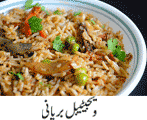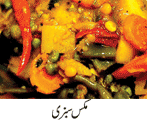Hadith About Patienceصبر کے بارے میں نبی پاک ﷺ کا فرمان
Hadith About Patience is a Blessing صبر ایک نعمت ہے
Narrated Abu Sa`id Al-Khudri: Some Ansari persons asked for (something) from Allah's Apostle (p.b.u.h) and he gave them. They again asked him for (something) and he again gave them. And then they asked him and he gave them again till all that was with him finished. And then he said If I had anything. I would not keep it away from you. (Remember) Whoever abstains from asking others, Allah will make him contented, and whoever tries to make himself self-sufficient, Allah will make him self-sufficient. And whoever remains patient, Allah will make him patient. Nobody can be given a blessing better and greater than patience.
Book: Sahih Bukhari, Chapter: Zakat, Hadees No. 1469Abu Sa'eed narrated: Some persons from the Ansar asked for (something) from the Messenger of Allah (s.a.w) and he gave them. They again asked him for (something), and he gave them. Then he said: 'whatever of good that I have, I would never hoard it from any of you. (Remember) whoever abstains from asking others, Allah will make him content, and whoever tries to make due, Allah will suffice him. And whoever remains patient, Allah will make him patient. Nobody can be given a blessing better and more encompassing than patience.
Book: Jamia Tirmazi, Chapter: Righteousness And Maintaining Good Relations With Relatives, Hadees No. 2024ہم سے عبداللہ بن یوسف نے بیان کیا ‘ کہا کہ ہمیں امام مالک نے ‘ ابن شہاب سے خبر دی ‘ انہیں عطاء بن یزید لیثی نے اور انہیں ابو سعید خدری رضی اللہ عنہ نے کہ انصار کے کچھ لوگوں نے رسول اللہ صلی اللہ علیہ وسلم سے سوال کیا تو آپ صلی اللہ علیہ وسلم نے انہیں دیا۔ پھر انہوں نے سوال کیا اور آپ صلی اللہ علیہ وسلم نے پھر دیا۔ یہاں تک کہ جو مال آپ صلی اللہ علیہ وسلم کے پاس تھا۔ اب وہ ختم ہو گیا۔ پھر آپ صلی اللہ علیہ وسلم نے فرمایا کہ اگر میرے پاس جو مال و دولت ہو تو میں اسے بچا کر نہیں رکھوں گا۔ مگر جو شخص سوال کرنے سے بچتا ہے تو اللہ تعالیٰ بھی اسے سوال کرنے سے محفوظ ہی رکھتا ہے۔ اور جو شخص بے نیازی برتتا ہے تو اللہ تعالیٰ اسے بےنیاز بنا دیتا ہے اور جو شخص اپنے اوپر زور ڈال کر بھی صبر کرتا ہے تو اللہ تعالیٰ بھی اسے صبر و استقلال دے دیتا ہے۔ اور کسی کو بھی صبر سے زیادہ بہتر اور اس سے زیادہ بےپایاں خیر نہیں ملی۔ ( صبر تمام نعمتوں سے بڑھ کر ہے )۔
Book: Sahih Bukhari, Chapter: Zakat, Hadees No. 1469ابو سعید خدری رضی الله عنہ سے روایت ہے کہ چند انصاریوں نے نبی اکرم صلی اللہ علیہ وسلم سے کچھ مانگا، آپ نے انہیں دیا، انہوں نے پھر مانگا، آپ نے پھر دیا، پھر فرمایا: ”جو مال بھی میرے پاس ہو گا میں اس کو تم سے چھپا کر ہرگز جمع نہیں رکھوں گا، لیکن جو استغناء ظاہر کرے گا اللہ تعالیٰ اس کو غنی کر دے گا ۱؎، جو سوال سے بچے گا اللہ تعالیٰ اس کو سوال سے محفوظ رکھے گا، اور جو صبر کی توفیق مانگے گا اللہ تعالیٰ اسے صبر کی توفیق عطا کرے گا، کسی شخص کو بھی صبر سے بہتر اور کشادہ کوئی چیز نہیں ملی“۔ امام ترمذی کہتے ہیں: ۱- یہ حدیث حسن صحیح ہے، ۲- یہ حدیث امام مالک سے ( دوسری سند سے ) «فلن أذخره عنكم» کے الفاظ کے ساتھ بھی آئی ہے، ان دونوں عبارتوں کا ایک ہی معنی ہے، یعنی تم لوگوں سے میں اسے ہرگز نہیں روک رکھوں گا، ۳- اس باب میں انس سے بھی روایت ہے۔
Book: Jamia Tirmazi, Chapter: Righteousness And Maintaining Good Relations With Relatives, Hadees No. 2024حَدَّثَنَا عَبْدُ اللَّهِ بْنُ يُوسُفَ، أَخْبَرَنَا مَالِكٌ، عَنِ ابْنِ شِهَابٍ ، عَنْ عَطَاءِ بْنِ يَزِيدَ اللَّيْثِيِّ، عَنْ أَبِي سَعِيدٍ الْخُدْرِيِّ رَضِيَ اللَّهُ عَنْهُ، إِنَّ نَاسًا مِنْ الْأَنْصَارِ سَأَلُوا رَسُولَ اللَّهِ صَلَّى اللَّهُ عَلَيْهِ وَسَلَّمَ فَأَعْطَاهُمْ ، ثُمَّ سَأَلُوهُ فَأَعْطَاهُمْ ، ثُمَّ سَأَلُوهُ فَأَعْطَاهُمْ، حَتَّى نَفِدَ مَا عِنْدَهُ , فَقَالَ: مَا يَكُونُ عِنْدِي مِنْ خَيْرٍ فَلَنْ أَدَّخِرَهُ عَنْكُمْ، وَمَنْ يَسْتَعْفِفْ يُعِفَّهُ اللَّهُ ، وَمَنْ يَسْتَغْنِ يُغْنِهِ اللَّهُ ، وَمَنْ يَتَصَبَّرْ يُصَبِّرْهُ اللَّهُ ، وَمَا أُعْطِيَ أَحَدٌ عَطَاءً خَيْرًا وَأَوْسَعَ مِنَ الصَّبْرِ.
Book: Sahih Bukhari, Chapter: Zakat, Hadees No. 1469حَدَّثَنَا الْأَنْصَارِيُّ، حَدَّثَنَا مَعْنٌ، حَدَّثَنَا مَالِكُ بْنُ أَنَسٍ، عَنِ الزُّهْرِيِّ، عَنْ عَطَاءِ بْنِ يَزِيدَ، عَنْ أَبِي سَعِيدٍ، أَنَّ نَاسًا مِنَ الْأَنْصَارِ سَأَلُوا النَّبِيَّ صَلَّى اللَّهُ عَلَيْهِ وَسَلَّمَ فَأَعْطَاهُمْ، ثُمَّ سَأَلُوهُ، فَأَعْطَاهُمْ، ثُمَّ قَالَ: مَا يَكُونُ عِنْدِي مِنْ خَيْرٍ فَلَنْ أَدَّخِرَهُ عَنْكُمْ، وَمَنْ يَسْتَغْنِ يُغْنِهِ اللَّهُ، وَمَنْ يَسْتَعْفِفْ يُعِفَّهُ اللَّهُ، وَمَنْ يَتَصَبَّرْ يُصَبِّرْهُ اللَّهُ، وَمَا أُعْطِيَ أَحَدٌ شَيْئًا هُوَ خَيْرٌ وَأَوْسَعُ مِنَ الصَّبْرِ ، قَالَ أَبُو عِيسَى: وَفِي الْبَابِ عَنِ أَنَسٍ، وَهَذَا حَدِيثٌ حَسَنٌ صَحِيحٌ، وَقَدْ رُوِيَ عَنْ مَالِكٍ هَذَا الْحَدِيثُ، فَلَنْ أَذْخَرَهُ عَنْكُمْ وَالْمَعْنَى فِيهِ وَاحِدٌ، يَقُولُ: لَنْ أَحْبِسَهُ عَنْكُمْ.
Book: Jamia Tirmazi, Chapter: Righteousness And Maintaining Good Relations With Relatives, Hadees No. 2024Hadith About Patience by Hazrat Muhammad (P.B.U.H)
The Arabic word “Sabr” can be translated as “endurance”, “perseverance” and “patience” in English. Patience can be defined as remaining spiritually steadfast and keep doing good deeds in the personal and collective domains, especially when facing opposition. A comprehensive virtue in Islam, Sabr encompasses perseverance, restraint, diligence, forbearance and, endurance.
According to a Sahih Hadith about patience (Sahih Bukhari, Chapter: Zakat, Hadees No. 1469), Allah’s Apostle Hazrat Muhammad (ﷺ) has been narrated as saying, “Whoever remains patient, Allah will make him patient. There is no gift better and more comprehensive than patience.”
Verse about Patience:
Several verses of the Noble Quran teach the practice of patience, while promising great rewards from Allah Almighty both in this world and the one hereafter. The best reward of patience is that the person practising it gets entitled for Allah’s help. The verse 153 of Chapter 2 (Surah Al-Baqarah) says, “O you who have believed, seek help through patience and prayer. Indeed, Allah is with the patient.”
The above verse of the Noble Quran also guides you to the easiest way out of distress, i.e. you should seek help through patience and prayer.
Here is another verse about Sabr.
وَإِنْ عَاقَبْتُمْ فَعَاقِبُوا بِمِثْلِ مَا عُوقِبْتُم بِهِ ۖ وَلَئِن صَبَرْتُمْ لَهُوَ خَيْرٌ لِّلصَّابِرِينَ (16:126)
Translation: “And if you punish [an enemy, O believers], punish with an equivalent of that with which you were harmed. But if you are patient - it is better for those who are patient.”
Here are Ahadees about Sabr along with their translation in Urdu and English.











